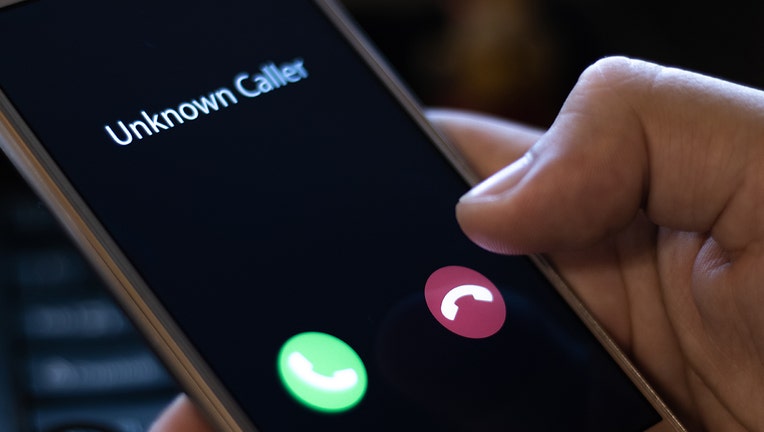6 ways to spot student loan forgiveness scams

Student loan relief scammers are enticing students with loan forgiveness and false promises. If an offer sounds too good to be true, it probably is. Find out how to spot these 6 scams. (iStock)
Over the past few months, there has been a lot of talk about student loan relief. Federally-held student loan payments are on hold due to COVID. Some private lenders are also offering forbearance and lower monthly payments.
Sadly, scammers posing as legitimate lenders can take advantage of the hardship caused by the coronavirus pandemic by offering to pay off or at least pay down your student loans. All you have to do is pay an upfront fee and provide some personal information. Sound too good to be true? It likely is.
If you're looking for immediate student loan relief, Credible can help. Credible can be handy for comparing student loan refinancing rates from multiple lenders without affecting your credit score.
But be diligent and do your homework before picking your best option. Learn to spot these 6 student loan forgiveness scams.
RATES FOR STUDENT LOAN REFINANCING HAVE NEVER BEEN LOWER.
6 "too-good-to-be-true" scams that are just that
1. You are charged a fee. Participation in student loan forgiveness programs is free. It is illegal for debt relief service providers to ask for money—upfront or monthly—to settle or lower a loan before the service is carried out.
2. Not a DOE provider. There is a shortlist of debt service providers that work with the Department of Education (DOE)—like Navient, Great Lakes Educational Loan Services, and FedLoan Servicing. If you’re uncertain a company is legitimate, reach out to your loan servicer.
3. You feel pressured to sign up. It’s not uncommon for scammers to ask for an immediate response to an offer. If a caller presses you for information that you hesitate to give out, ask for their number so you can do your research first before calling back.
4. Immediate loan payoff. It can take from 10 to 20 years to pay off student loans. A company that says they can offer immediate discharge of your loans is misleading you and likely a scammer.
5. Provide personal information. Legitimate companies never ask for personal information over the phone, by email, or text. If asked to supply information like your Federal loan ID number and PIN, or your social security number, sign in to your student loan website or call your loan provider first.
6. Consolidation of your loans. Some scammers are presenting offers to lower your monthly payments by consolidating your loans. But they charge high fees to do so. It’s rare to pay a fee to consolidate your student loans, so be wary.
If you spot a scam, report it to the FTC at ftc.gov/complaint.
HOW HAS THE BIDEN ADMINISTRATION HELPED STUDENT LOAN BORROWERS?
How to get private student loan relief
Many private student loan servicers continue to assist borrowers due to hardship caused by COVID-19. However, keep in mind that during forbearance, interest still accrues, which will become due once forbearance ends.
Explore your options to refinance your student loans. Refinancing can extend the term of your loan and lower your monthly payments. To see how much, visit Credible to explore your refinance options and check out verified lenders.
For an undetermined time, student loan borrowers affected by COVID may request forbearance from some lenders.
Check with your bank to see if they offer student loan forbearance. Several lenders have programs in place for students hit hard by COVID. Unsure of your options? You can use Credible to compare student loan refinancing rates from multiple lenders at once without affecting your credit score.
WILL PRIVATE STUDENT LOANS BE FORGIVEN? 3 WAYS BORROWERS CAN MANAGE THEIR DEBT NOW.
Federal student loan relief
Federal student loan relief has been extended through September 30, 2021. That’s good news for anyone suffering the effects of COVID. Just a few ways to get relief include:
- 0% interest on all U.S. Department of Education student loans by FedLoan Servicing.
- Suspension of payments, at least temporarily through September 30, 2021.
- Automatic suspension of direct deposit payments.
- Payments that were made from March 13, 2020 through September 30, 2021 can be refunded.
- Income-Driven Repayment (IDR) and Public Service Loan Forgiveness (PSLF) will receive a credit toward PSLF if you work for a qualifying employer during the loan suspension period.
WHO BENEFITS FROM STUDENT LOAN FORGIVENESS?
Is it a good idea to refinance federal student loans?
Refinancing your private student loans can lower your interest rate and your monthly payments. If money is tight, mainly due to the pandemic, you may want to consider this option. Use an online tool like Credible to get prequalified student loan refinancing rates without affecting your credit score. And use an online student loan refinancing calculator to get a sense of what their new monthly payments could be.
Although lower monthly payments are a benefit too good to pass by, refinancing a federal student loan with a private lender means you can no longer take advantage of the suspension of payments or the temporary 0% interest rate until September 30, 2021, on federal loans.
If you have questions regarding the refinancing of your student loans, visit Credible to get in touch with experienced loan officers and have your student loan refinancing questions answered.
SHOULD I REFINANCE MY FEDERAL STUDENT LOANS?
Have a finance-related question, but don't know who to ask? Email The Credible Money Expert at moneyexpert@credible.com and your question might be answered by Credible in our Money Expert column.

